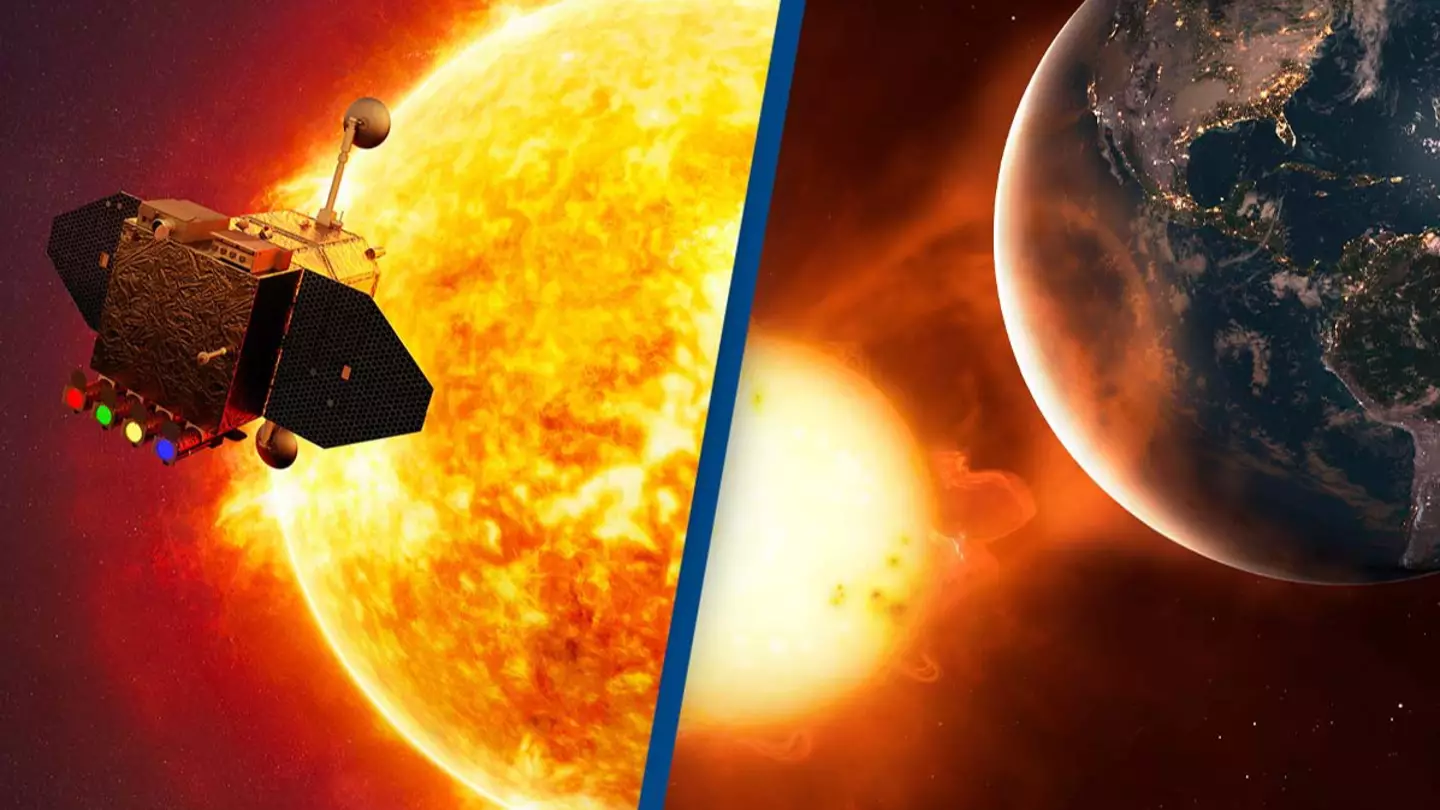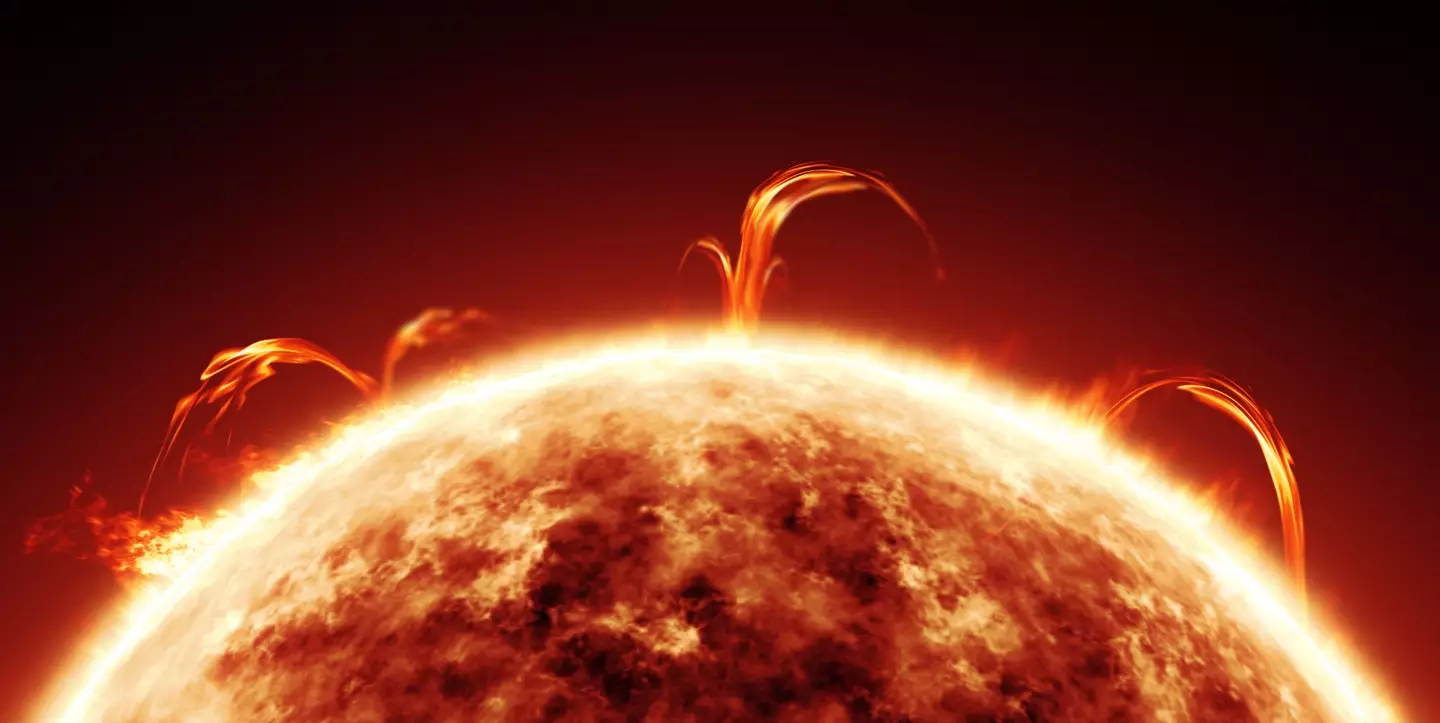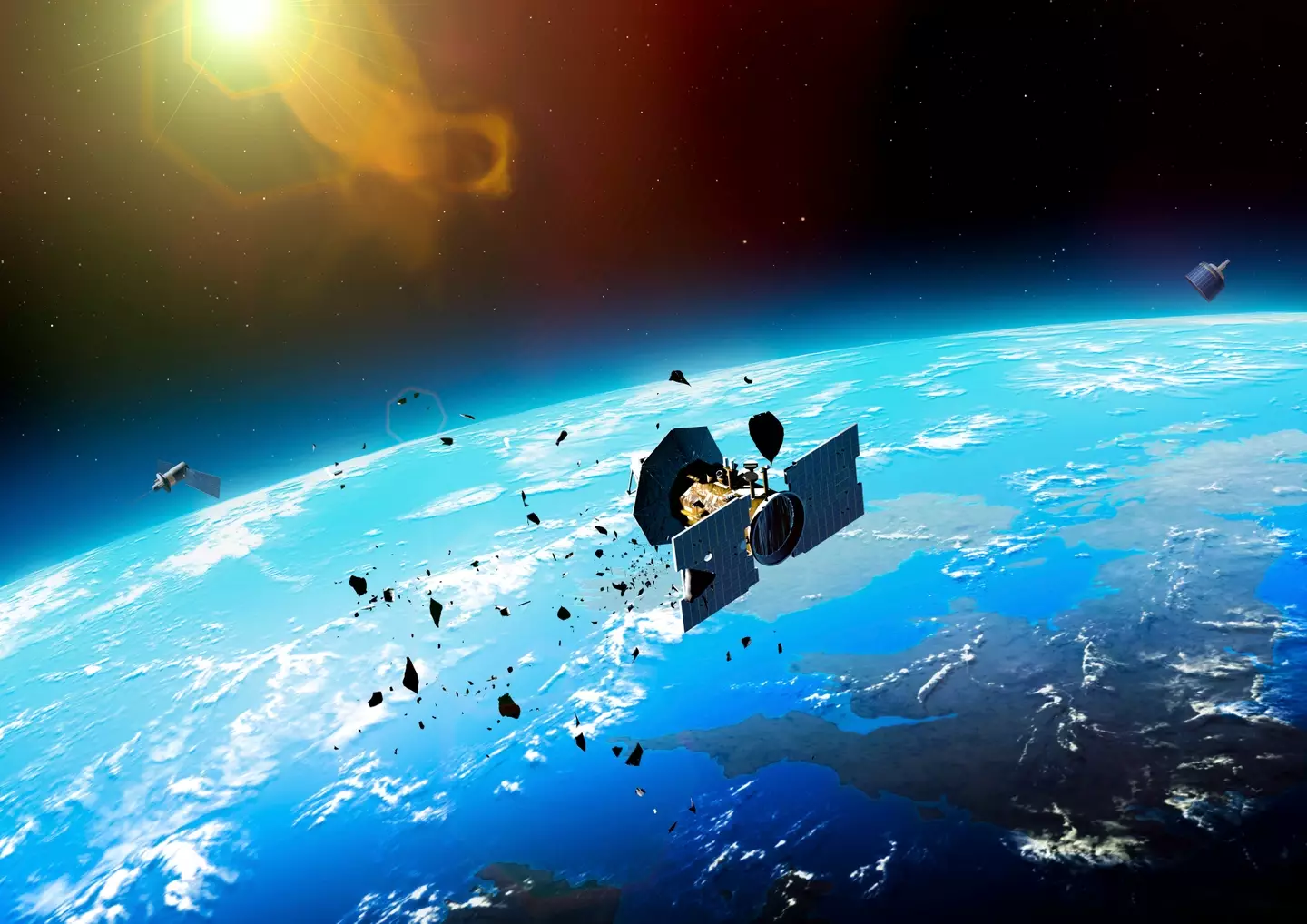
Scientists have warned that a radiation storm could impact Earth in the coming days.
In and of themselves, solar storms are not an uncommon cosmic event, but these ones are a bit different.
Most of the time when there's a solar flare or solar storm large enough to reach Earth, it goes off on a part of the Sun, which is pointing away from the Earth.
So, even if it was a gigantic solar flare it's fine, because it will miss us by a very long way.
Advert
Others might be heading towards us, but aren't strong enough to make it all the way to Earth.
Sometimes, however, the solar flares are both powerful enough to reach us here on Earth and also pointing in the right direction, though maybe it's more the wrong direction?
This can cause disruption to things like communications, as well as electrical systems and computers in extreme circumstances.

Advert
Lately, we have had a spate of difficult 'solar weather', with the Sun releasing streams of electromagnetic radiation.
These contain large quantities of charged particles, and due to the intense magnetic activity on the Sun's surface, there are a lot more of them than usual, and they're going faster.
For those of us with our feet planted firmly on the ground, this means potential disruptions to communications and power grids.
If you're an astronaut up in space, there's also a heightened risk of radiation hazards.
Advert
The National Oceanic and Atmospheric Administration (NOAA) has shown a 60 percent chance of a solar 'radiation storm', which will start tomorrow.
Fortunately, solar flares are predicted to miss Earth, but the radiation storms have a more wide-reaching structure.

This is because they emanate from the Sun in a spiral pattern, which covers a far broader area than a solar flare.
Advert
NASA's Solar Dynamics Observatory team explained: "[As] the Sun rotates, the Sun's magnetic field expands outwards in a spiral pattern, the Parker Spiral."
The problem here is that some of the substances from a solar flare can get caught up in this spiral.
In the NASA team's words, this leads to 'the charged particles of the solar wind spraying out into the solar system like a garden sprinkler.'
Graphic.
Advert
Earth has potentially had some impact from this already, with farmers in Minnesota and Nebraska experiencing disruptions to their GPS systems.
Farmer Kevin Kenney told 404 Media: "All the tractors are sitting at the ends of the field right now shut down because of the solar storm. No GPS."
Topics: News, Science, Space, World News, Weather, Technology
